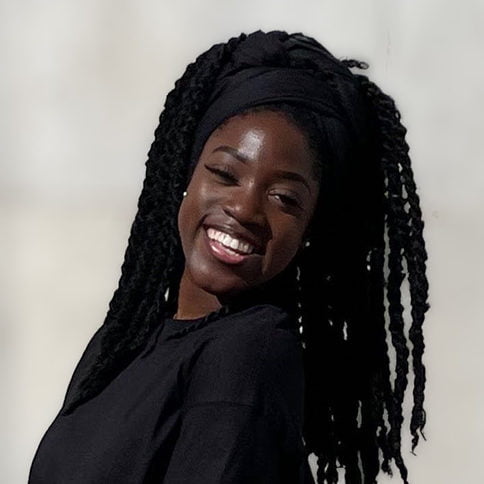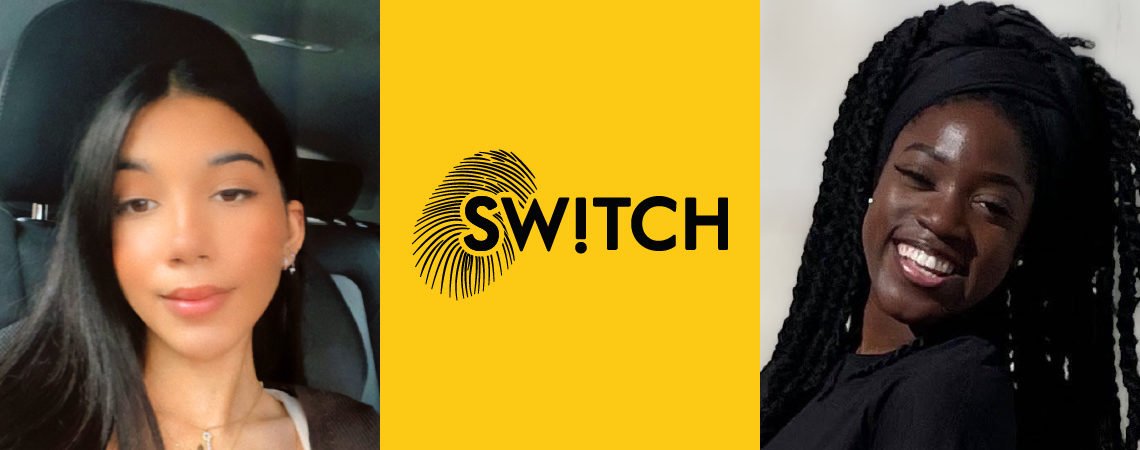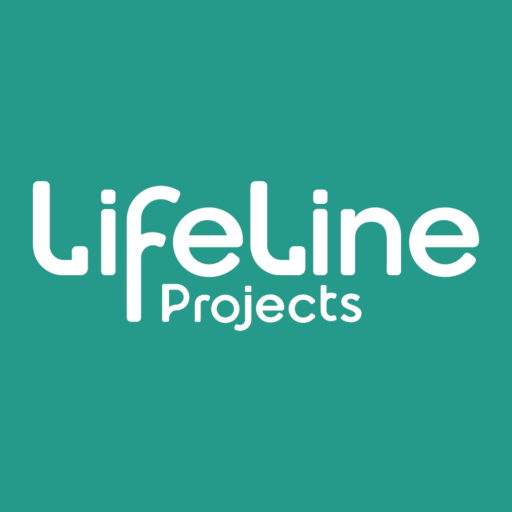This month, we’re delighted to introduce two recent additions to our SW!TCH team, Dara and Sara. They first came to us as mentees through the SW!TCH, before rising to the challenge and supporting other young people as SW!TCH Ambassadors. Now they’ve become fully-fledged members of the team as our new Junior Youth Development Workers.
We hope you enjoy hearing about their journey with us.
Dara Abimbola, Junior Youth Development Worker
Dara has been with LifeLine Projects for quite a while now. She first came to SW!TCH when her teachers thought it would be good for her to have a mentor. At the time, she was in foster care and didn’t have an outlet for her feelings, anyone she could tell what she was going through.

Dara's story
As a child, my family life was challenging and demanding—but it felt normal to me. I came from a single parent household in Dagenham, living with my mum and three sisters. Our household was culturally Black British Nigerian/Ghanian. I spent a lot of time helping my mum to raise my siblings. She tried to bring me up in the traditional Nigerian way, but I fought against it and it caused a lot of tension. It wasn’t a joyful experience. But one of the things I got out of it was that it taught me to stand up for myself. To this day, I still have a strained relationship with my mum.
My school in Upminster seemed so calm compared to my home life. Then one day, the school told me I wasn’t going home and they arranged for me to be placed in foster care. At the time, I was a very mouthy person—ambitious and very talkative.
My SW!TCH mentors came from similar backgrounds to me. They understood where I was coming from and they saw potential in me to become a mentor. I feel like I have a gift for speaking to all kinds of people. As a mentor, I could reflect on my own life experiences to help other young people, and LifeLine has allowed me to hone my natural talents. Being a Junior Youth Development Worker is still a lot like being a SW!TCH Ambassador—just with a lot more paperwork! But I really enjoy it a lot.
I’ve been living on my own since I was 17 and I’ve calmed down a lot now. I’m still very ambitious and driven though—I’ve already got plans for my future laid out. I’m going to university in America and then Ghana after.
What problems does the project you’re working on solve?
Community engagement can be difficult for a lot of reasons, but all of us are always trying to get better at it and increase our presence.
What skills do you need to do the work you do?
It really helps to be a good public speaker and have that engaging personality. And, of course, you’ve got to be a great listener.
What led you to this job?
I really love being with LifeLine and I didn’t want to leave!
In your work life what are you most proud of?
The connections I’ve made and the people I’ve met.
As a child, what did you want to be when you grew up?
Everything and anything, but initially a politician.
How would you describe LifeLine and its staff members?
One word: family
What do you think other people should know about LifeLine?
It’s a hub for personal improvement. And it’s helped me strengthen my faith.
What has been the happiest day of your life?
The happiest day of my life will be when I get off that plane in America to go university—Franklin & Marshall College, Lancaster, Pennsylvania.
Sara Chnari, Junior Youth Development Worker

Sara's story
I was originally a SW!TCH mentee, then a SW!TCH Ambassador, and now I actually work at LifeLine.
I was at school and attended a LifeLine workshop on knife crime and I thought it was great. Then, about a year later, there was another workshop where I met Diana from LifeLine and we got on straight away. We talked quite a bit; we really connected because we’re quite similar. Talking with her, I felt more understood than in any classes at school. Shortly after that, she started mentoring me.
I guess, at first, I was venting to her. But she listened and made it comfortable. The first challenge of being a mentor is to gain the trust of the young person, to get them to speak. You can’t force a connection; just introduce yourself, say the truth, speak from your heart. You can’t push a relationship. They just have to know you’re there, whether on social media, by texting, or just chatting during activities.
A bit later on, I became a SW!TCH Ambassador, which I stayed as for over two years. I first heard about the Junior Youth Development Worker role via the Whatsapp group for the young people. It sounded like an extension of what I was already doing as an Ambassador—I knew I could do it. It’s now coming up to four months since I started my role.
In my family, it’s just me, my mum, my sister, and loads of cousins. I grew up in Grays in Essex then, from year 8, my family moved to Dagenham. We moved for the safety of the family, on the recommendation of a key worker. I didn’t mind moving as there were very few other people of colour where I grew up, but now suddenly I was one of the crowd and I could blend in easier. I’ve always been quite outgoing, so it was easy to make new friends. There were times when my friendships became quite problematic. Some of my friends and peers were targeted by gang members and, in school, there was also a certain degree of rape culture that no one spoke about. That may be due to sexism but also to with the age of the people making the allegations.
With all I’ve seen, I hope to offer young girls and boys the support to not go down the wrong path. But you can’t be helped if you don’t want to be helped. SW!TCH, and Lifeline as a whole, helped me grow into a person that can help others while also helping myself.
What do you like most about your job?
Just meeting the young people is great.
In your work life, what are you most proud of?
Having the support of the young people and knowing that they respect me. It takes a long time for people to trust you.
As a child, what did you want to be when you grew up?
To be either a therapist or a dancer. I don’t want to be a dancer anymore.
How would you describe LifeLine and its staff members?
It’s just like a big family.
What do you think other people should know about LifeLine?
It’s all about the people we help. They’re like family to us.
What one word would you use to describe yourself?
Friendly. It’s the way I present myself to other people—treat people with respect to get respect.



